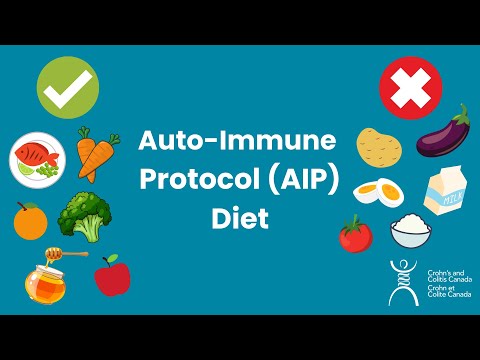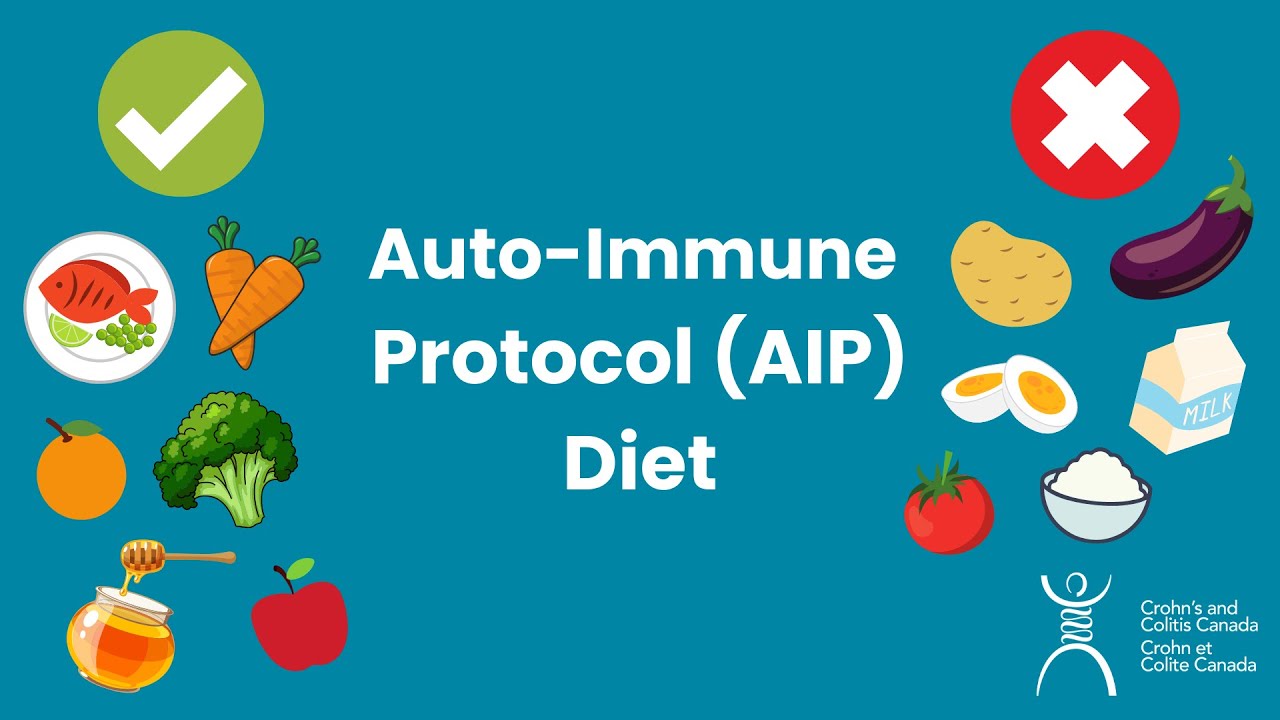The Autoimmune Protocol (AIP) diet is a revolutionary approach to eating that focuses on restoring gut health and reducing inflammation in the body. With a growing number of people suffering from autoimmune diseases, the AIP diet has gained popularity as a means to alleviate symptoms and improve overall well-being. This diet eliminates certain foods that are known to trigger inflammation and immune responses, such as grains, dairy, processed sugars, legumes, and nightshade vegetables. By following the AIP diet, individuals aim to heal their bodies from within by nourishing it with nutrient-dense foods that promote gut health, reduce inflammation, and support optimal immune function.
Delicious and nutritious foods that are encouraged on the AIP diet include grass-fed meats, wild-caught fish, organ meats, vegetables (excluding nightshades), fruit, coconut products, fermented foods, and herbal teas. These foods provide essential vitamins, minerals, and antioxidants that support the body’s natural healing processes. Additionally, the AIP diet emphasizes the importance of stress management, quality sleep, and regular exercise to further enhance overall health and well-being.
If you are seeking a diet that goes beyond weight loss and focuses on addressing the root causes of autoimmune diseases, the AIP diet could be the answer you’ve been looking for. By reducing inflammation, supporting gut health, and promoting optimal immune function, the AIP diet offers a comprehensive approach to improving your overall health and quality of life.

The Autoimmune Protocol (AIP) Diet
| Key Principles | Benefits | Foods to Include | Foods to Avoid |
|---|---|---|---|
| The AIP diet is a therapeutic approach designed to reduce inflammation and heal the gut by eliminating foods that may trigger autoimmune reactions. | – Reduces autoimmune symptoms – Promotes gut healing – Supports immune system function – Enhances overall well-being |
– Pastured and grass-fed meats – Wild-caught fish – Non-starchy vegetables – Fermented foods – Bone broth |
– Grains and pseudo-grains – Legumes – Nightshade vegetables – Dairy products – Processed foods – Eggs – Nuts and seeds |
| The AIP diet emphasizes nutrient-dense foods, rich in vitamins, minerals, antioxidants, and anti-inflammatory compounds. | – Improves nutrient absorption – Supports healthy weight management – Enhances energy levels – Boosts mental clarity – Strengthens the immune system |
– Leafy greens – Colorful fruits and vegetables – Healthy fats (e.g., olive oil, coconut oil) – Organ meats – Herbal teas |
– Gluten-containing grains – Added sugars – Alcohol – Artificial sweeteners – Industrial seed oils (e.g., soybean, canola) – Coffee |
| The AIP diet also encourages lifestyle modifications, such as stress management, quality sleep, and regular exercise. | – Reduces stress-related inflammation – Enhances sleep quality – Supports physical fitness – Promotes holistic well-being |
– Gentle exercises (e.g., yoga, walking) – Mindfulness practices – Adequate rest and relaxation – Stress-reducing activities |
– Intense workouts – Sleep deprivation – Chronic stress – Sedentary lifestyle – Neglecting self-care |
The Autoimmune Protocol (AIP) diet is an evidence-based therapeutic approach that aims to alleviate symptoms and improve the overall well-being of individuals with autoimmune conditions. By removing potentially triggering foods and emphasizing nutrient-dense alternatives, the AIP diet supports gut healing, reduces inflammation, and promotes immune system balance.
Adhering to the AIP diet involves eliminating grains, legumes, nightshade vegetables, dairy products, processed foods, eggs, nuts, and seeds. Instead, it encourages the consumption of pastured meats, wild-caught fish, non-starchy vegetables, fermented foods, and bone broth. These choices provide essential nutrients, such as vitamins, minerals, antioxidants, and anti-inflammatory compounds, which are vital for healing and maintaining optimal health.
Beyond dietary modifications, the AIP diet also emphasizes lifestyle factors that contribute to overall wellness. Stress management techniques, quality sleep, and regular physical activity are encouraged to further reduce inflammation and support holistic well-being. Gentle exercises like yoga and walking, mindfulness practices, and adequate rest are recommended, while intense workouts, chronic stress, and sleep deprivation should be avoided.
By following the AIP diet and incorporating these lifestyle modifications, individuals can experience significant improvements in their autoimmune symptoms, energy levels, mental clarity, and immune system function. It is important to consult a healthcare professional or registered dietitian before starting the AIP diet to ensure personalized guidance and support throughout the journey.
“The Healing Power of AIP: Revolutionizing Inflammatory Bowel Disease Treatment”
The AIP Diet: Discovering the Healing Power of Food
In recent years, the Autoimmune Protocol (AIP) diet has gained significant attention for its potential to alleviate symptoms and manage autoimmune diseases. By focusing on nutrient-dense foods and eliminating potential triggers, this diet aims to restore gut health and reduce inflammation. In this article, we delve into the intricacies of the AIP diet and explore its benefits, guidelines, and potential challenges.
What is the AIP Diet?
The Autoimmune Protocol (AIP) diet is a variation of the paleo diet, which emphasizes whole, unprocessed foods while excluding grains, legumes, dairy, refined sugars, processed oils, and food additives. However, the AIP diet takes it a step further by temporarily removing additional potentially inflammatory foods, such as eggs, nightshade vegetables, nuts, seeds, and certain spices.
The Science Behind the AIP Diet
The AIP diet is rooted in the understanding that autoimmune diseases, such as rheumatoid arthritis, Hashimoto’s thyroiditis, and inflammatory bowel disease, are characterized by a dysregulated immune system and chronic inflammation. By removing foods that may trigger inflammation and damage the gut lining, the AIP diet aims to restore balance and heal the body from within.
The Benefits of the AIP Diet
Reduced Inflammation: Chronic inflammation is a common underlying factor in many autoimmune diseases. By eliminating potentially inflammatory foods, the AIP diet can help reduce overall inflammation levels in the body, leading to a decrease in symptoms and improved quality of life.
Improved Gut Health: The AIP diet focuses on healing the gut by removing foods that can irritate the gut lining and trigger immune responses. By restoring gut health, the diet aims to enhance nutrient absorption, support optimal digestion, and promote a stronger immune system.
Symptom Relief: Many individuals with autoimmune diseases report a reduction in symptoms, such as joint pain, fatigue, skin rashes, and digestive issues, after adopting the AIP diet. While results may vary, this dietary approach has shown promise in improving overall well-being and quality of life.
Identification of Trigger Foods: The elimination phase of the AIP diet allows individuals to identify specific foods that may trigger or worsen their symptoms. By reintroducing eliminated foods one by one, individuals can pinpoint their trigger foods and make informed decisions about their diet moving forward.
Guidelines and Challenges of the AIP Diet
Elimination Phase: The AIP diet typically begins with an elimination phase lasting for several weeks to several months. During this phase, individuals remove all potentially inflammatory foods, including grains, legumes, dairy, processed sugars, processed oils, eggs, nuts, seeds, nightshade vegetables, and certain spices. This phase requires dedication and careful meal planning.
Reintroduction Phase: After the elimination phase, the reintroduction phase begins. This phase involves systematically reintroducing eliminated foods, one at a time, to assess individual tolerance and identify trigger foods. It is essential to reintroduce foods slowly and mindfully to accurately identify any adverse reactions.
Meal Planning and Preparation: The AIP diet often requires careful meal planning and preparation, as many processed and convenience foods are not compliant. Individuals need to focus on nutrient-dense foods such as grass-fed meats, wild-caught fish, vegetables, fruits, and healthy fats, while avoiding potential trigger foods.
Social and Emotional Challenges: Adhering to the AIP diet can present social and emotional challenges, as it may limit dining out options and require individuals to navigate social gatherings differently. Building a support network, finding AIP-friendly recipes, and adopting a positive mindset are crucial for long-term success with this dietary approach.
The AIP Diet: A Personal Journey to Healing
The AIP diet is not a one-size-fits-all solution, and individual experiences may vary. It is important to consult with a healthcare professional or a registered dietitian before starting the AIP diet, especially if you have underlying health conditions or are taking medications.
While the AIP diet may present challenges, many individuals have experienced significant improvements in their autoimmune symptoms and overall well-being. By embracing the power of food as medicine and making informed choices, the AIP diet offers hope and a path to healing for those living with autoimmune diseases.
If you are considering the AIP diet, it is important to educate yourself, seek support, and listen to your body’s unique needs. Remember, healing takes time, so be patient and kind to yourself throughout this transformative journey.
The AIP Diet
- Elimination of certain foods: The AIP (Autoimmune Protocol) diet involves eliminating potentially inflammatory foods such as grains, legumes, dairy, processed sugars, alcohol, and nightshade vegetables.
- Focus on nutrient-dense foods: The diet emphasizes consuming nutrient-dense foods like vegetables, fruits, quality meats, fatty fish, organ meats, bone broth, healthy fats, and fermented foods.
- Elimination of food sensitivities: The AIP diet helps identify and eliminate any food sensitivities or triggers that may be contributing to autoimmune symptoms.
- Healing the gut: The diet promotes a healthy gut by removing foods that can damage the gut lining and incorporating foods that support gut health, such as bone broth and fermented foods.
- Anti-inflammatory benefits: The AIP diet aims to reduce inflammation in the body, which can be beneficial for individuals with autoimmune conditions.
- Reintroduction phase: After a period of strict elimination, some foods are gradually reintroduced to determine if they trigger any symptoms or flare-ups.
- Lifestyle factors: Along with dietary changes, the AIP diet often includes lifestyle modifications such as stress reduction, quality sleep, regular physical activity, and mindfulness practices.

